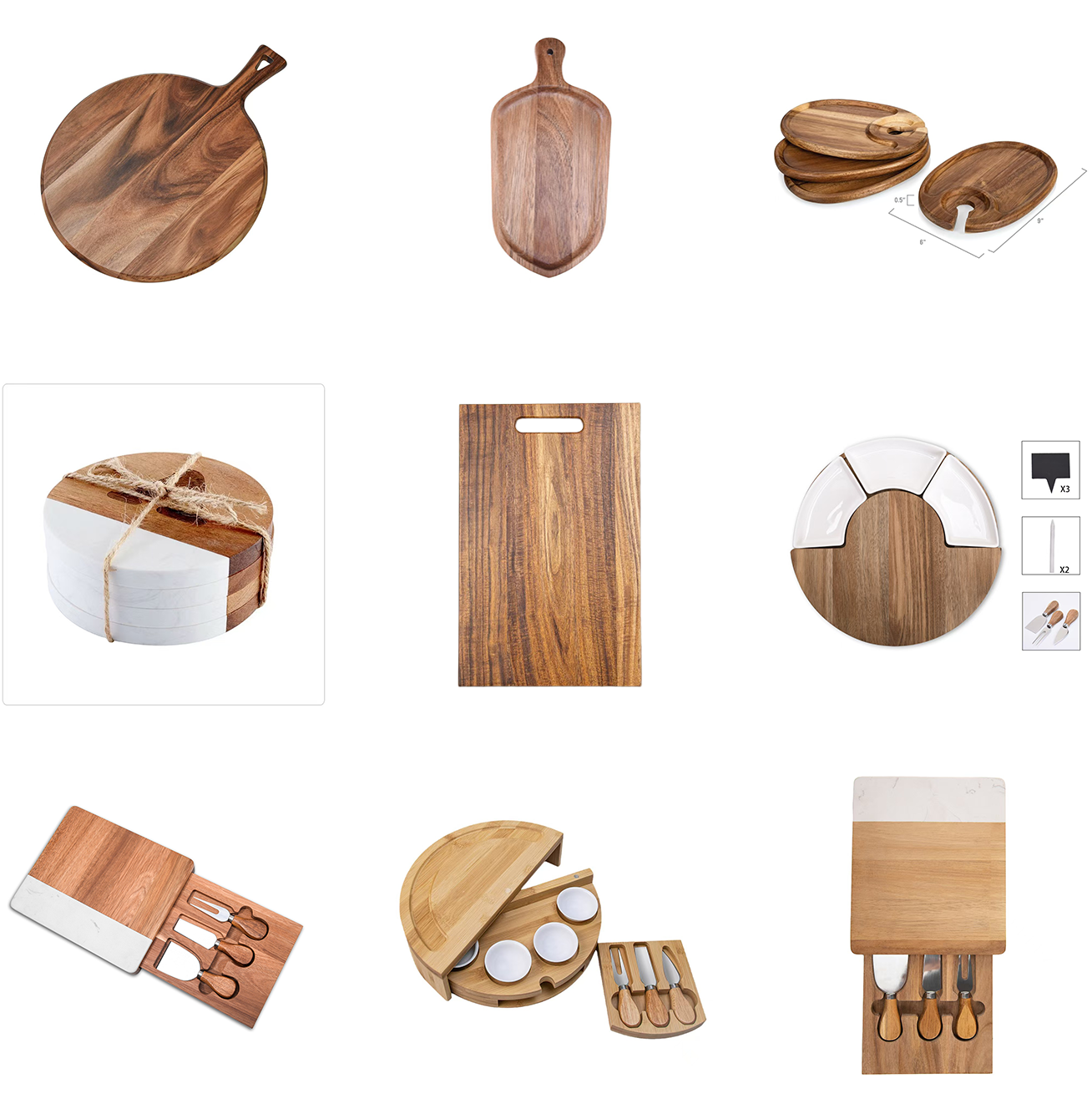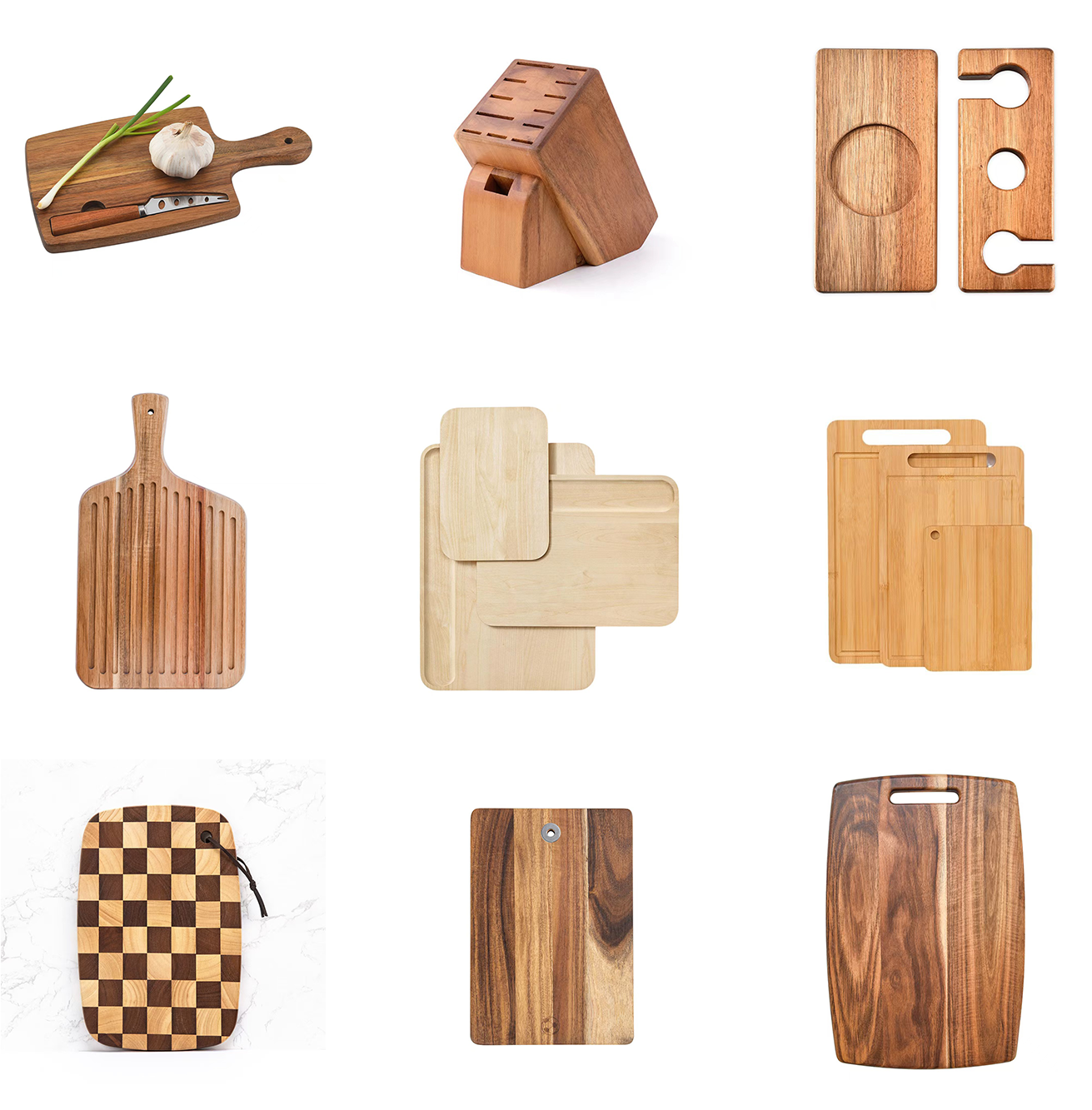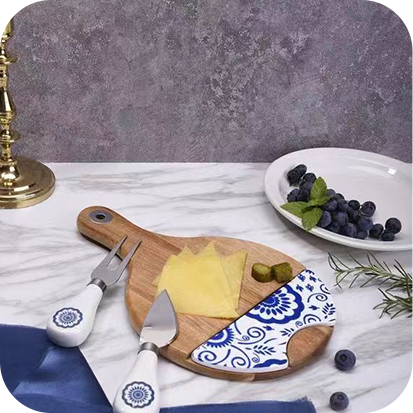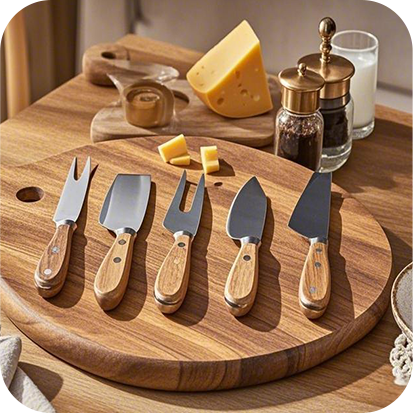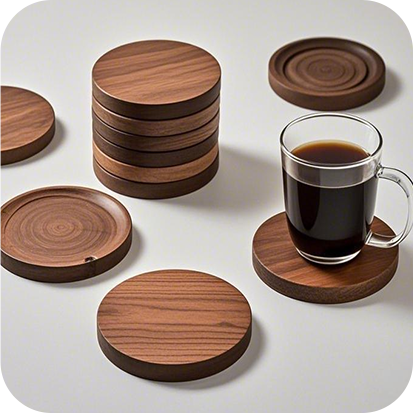This article explains why food-safe certification is vital for wooden cutting board importers. It includes an overview of regulatory risks, international standards, and how our certified Acacia products help ensure safe and legal distribution.
Why Food Safety Certifications Are Crucial for Cutting Board Importers
Importers today face increasing scrutiny from both regulators and consumers regarding food safety standards. This article explores why certifications like FDA, SGS, and LFGB are essential—and how our Non-leaching material customizable Acacia wood Vegetable cutting board and Edible-safe on-demand production Acacia wood Vegetable cutting board are built to meet those standards.
1. What Importers Risk Without Certification
Shipment delays, bans, and brand damage are common for uncertified products. The Freezer safe Personalized Acacia wood Serving board supports international labeling and safety documentation.
2. What “Food-Safe” Really Means
Our Non-toxic customizable Acacia wood Snack board meets both U.S. and EU food safety regulations.
3. Certifications We Carry
Our boards are tested and certified for FDA, SGS, FSC, and LFGB compliance, with full documents available per batch.
4. Integrated Safety + Customization
Even our custom engraved boards use organic, odorless, edible-safe finishes as in the Edible-safe on-demand production Acacia wood Vegetable cutting board.
5. Ongoing Quality Control and Traceability
All products feature traceable lot codes and material origin documentation for audits and customs clearance.
SEO Keywords
- Non-leaching material customizable Acacia wood Vegetable cutting board
- Edible-safe on-demand production Acacia wood Vegetable cutting board
- Freezer safe Personalized Acacia wood Serving board
- FDA approved snack board
- SGS certified kitchen board
- LFGB compliant food tray
- Custom engraved food-safe board
- Global cutting board import compliance
- Non-toxic certified Acacia board
- Food contact material certification







